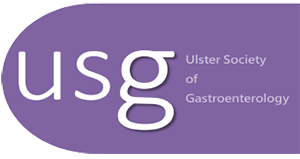The Profile Of Sessile Serrated Lesions Diagnosed Within The Northern Ireland Bowel Cancer Screening Programme.
Authors
Coleman HG1, Shah R2, O’Neill CJ3, Cameron RI4, Owen TA5, Dickey W6, Loughrey MB7Departments / Institutions
1. Centre for Public Health, Queen’s University Belfast. 2. Department of Pathology, Southern Health and Social Care Trust, Northern Ireland. 3. Department of Cellular and Molecular Pathology, Northern Health and Social Care Trust, Northern Ireland. 4. Department of Pathology, Western Health and Social Care Trust, Northern Ireland. 5. Public Health Agency, Quality Assurance Reference Centre, Northern Ireland Cancer Screening Programmes, Belfast, Northern Ireland. 6. Department of Gastroenterology, Western Health and Social Care Trust, Northern Ireland. 7. Department of Pathology, Belfast Health and Social Care Trust, Northern Ireland.Publication Date
Autumn 2017Introduction
There is a lack of evidence to inform guidelines for the management of pre-malignant colorectal sessile serrated lesions (SSL). Northern Ireland (NI) is the only UK region where pathologists have diagnosed SSL (or synonyms) during reporting of Bowel Cancer Screening (BCS) specimens since inception.
Aims
To profile SSL diagnoses, and their risk stratification for surveillance, within BCS in NI.
Methods
The NI BCS programme was initiated in April 2010. Data up to end March 2017 were considered for analysis, incorporating data on over 17,000 histopathological BCS specimens reviewed at one of four pathology laboratories.
Results
SSL were reported in 337 individuals, representing 6.7% of all 5,041 individuals who had a non-malignant histopathological BCS specimen reviewed. One male met criteria for serrated polyposis syndrome, and was excluded from further analysis. Of the remaining 336 SSL cases, 61.9% were male and 81% had only right-sided SSL detected. Large (≥10mm) SSL or SSL with dysplasia accounted for 82 cases (24.4%), of which only 22 (6.5% of SSL and 0.4% of total 5,041 individuals) did not have concurrent conventional adenomas that would already warrant more frequent surveillance.
Conclusion
SSL cases within this FOBt screening population were predominantly male and right-sided. Of all cases of large or dysplastic SSL, 93.5% also had high or intermediate risk adenomas, which would already require follow-up colonoscopy surveillance at one or three years according to adenoma surveillance guidelines. Therefore, the 2017 British Society of Gastroenterology position statement on serrated polyps will have limited impact in this clinical setting.
Latest News
Gastroenterology FK Meeting Provision and Challenges
Posted on: 2nd April 2021Latest Event
There are no up-coming events.E-Publications
Download our latest Documents


